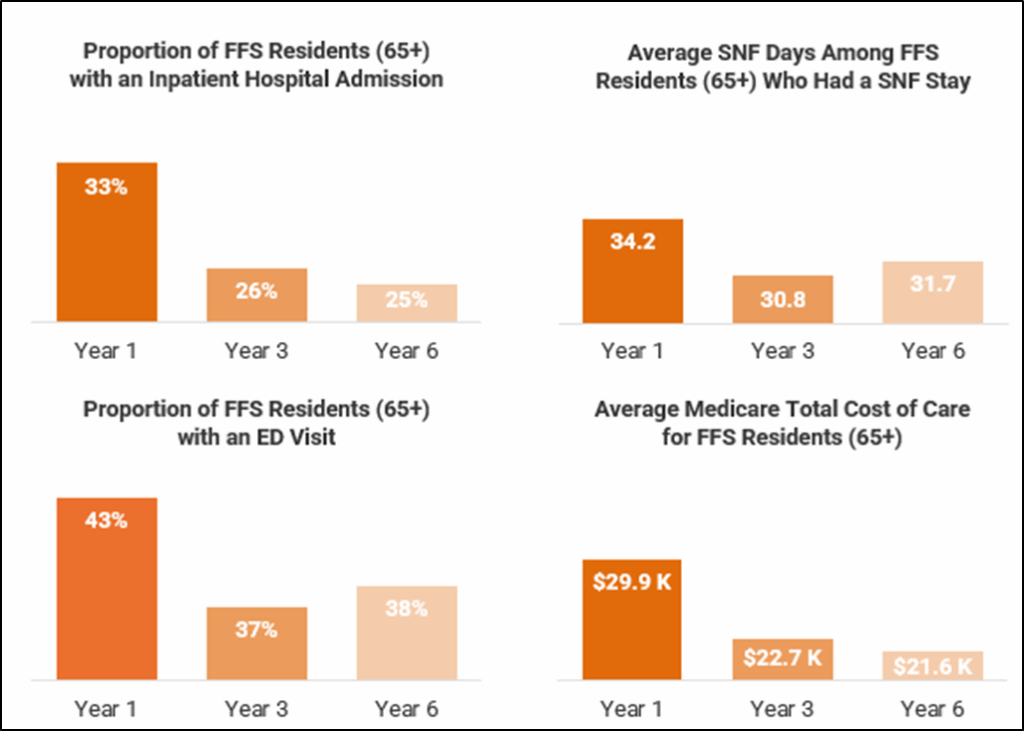New research shows that senior housing’s preventative approach to care contributes to increased quality of life for residents and reduced healthcare costs over time. The analysis was conducted by NORC at the University of Chicago (NORC) and supported by NIC.
Researchers assessed the sustained impact senior housing has on residents’ health and medical costs and found that older adults who remain in senior housing utilize less acute care services and see their health stabilize for several years after moving in.

Researchers also found that senior housing can promote health and wellness of residents with neurodegenerative diseases(NDD) by reducing the number of hospitalizations and readmissions, providing relief for family caregivers, and enabling timely access to care in a supportive environment, ultimately leading to greater longevity.
Key takeaways:
- Approximately one in four residents had a hospital admission in year three, compared to one in three in the first year.
- The proportion of residents with an emergency department visit declined by 14% from year one to year three.
- Average total Medicare costs per patient were $7.2K lower in year three than in year one.
- Top-performing senior housing communities created greater stability and safety for residents with NDD by reducing hospital visits, stays and readmissions—as well as lowering costs.
These findings suggest that senior housing continues to improve residents’ health and well-being for several years post move-in as operators provide effective and efficient solutions that help address unique healthcare challenges.
The research is part of an ongoing initiative led by NIC, in collaboration with NORC, to assess how senior housing supports the health and well-being of older adults. For full methodology and findings, click here.